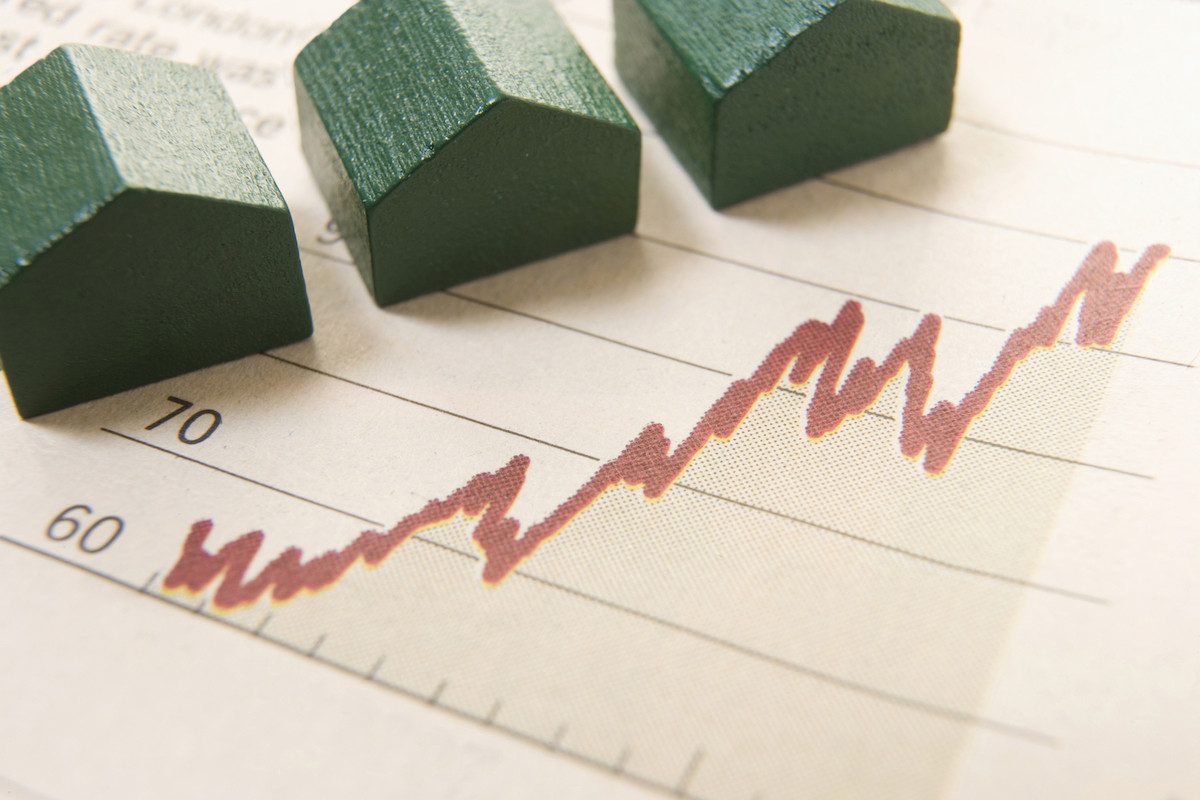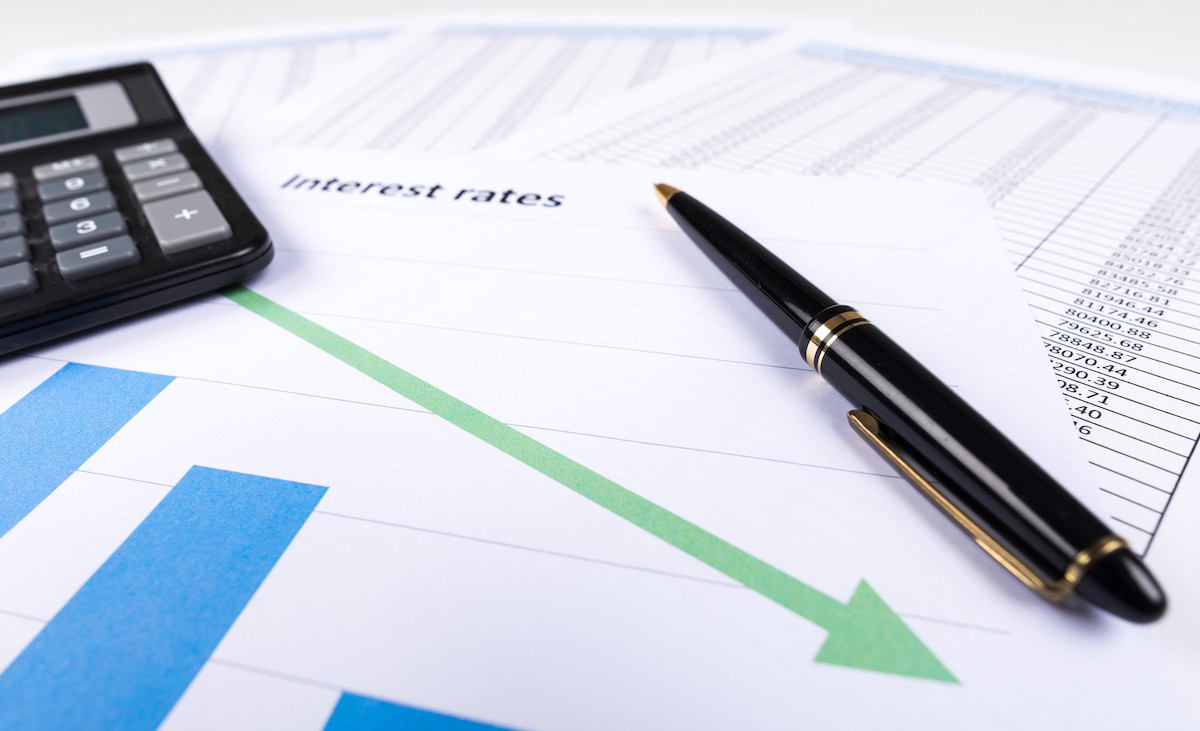People buying their first home often don’t realize just how many numbers and how much math is involved in the home buying process. Fortunately, highly trained real estate agents understand these numbers and equations and can guide you through these processes with ease.
Even with the help of a real estate agent, it is still a wise move to familiarize yourself with some of the core financial concepts necessary to home buying, to help eliminate any confusion you might have. Provided below you will discover an introduction to one of the most important concepts in home buying, the mortgage interest rate, which can have a huge impact on how much of your hard-earned money you will wind up having to spend on your new home.
If you are looking to buy a home, chances are you do not have hundreds of thousands of dollars on-hand to pay for the house in one up-front lump sum. If you cannot afford the property outright, you are going to need the help of a bank/lender. Your “mortgage” is a legal agreement where a bank (or other lender) lends you the money with interest, in exchange for taking title of the debtor's property, with an understanding that the conveyance of title becomes void upon the payment of the debt.
Your mortgage interest rate signals the yearly cost to borrow money from your bank. The rate is expressed as a percentage of your total loan balance and is paid on a monthly basis, along with your principal payment. This process continues until the loan is fully paid off.
A 10% mortgage rate, for example, means you will pay 10% of your total loan balance in interest each year. It is understood that you will pay more in interest at the start of your loan. As your loan’s principal balance goes down over time, so does the amount of interest you will pay each month.
If you’re interested in learning what the current mortgage interest rates are, these are the rates for March 27th, 2020. (Rates are variable, and can even change daily, so while these rates will be close to accurate for the foreseeable future, you will want to consult with today’s rates online, at a website like BankRate).
| Product | Interest Rate | APR |
|---|---|---|
| 30-Year Fixed Rate | 3.820% | 3.900% |
| 30-Year Fixed-Rate VA | 3.290% | 3.420% |
| 20-Year Fixed Rate | 3.860% | 3.890% |
| 15-Year Fixed Rate | 3.290% | 3.400% |
| 7/1 ARM | 3.550% | 3.880% |
| 5/1 ARM | 3.430% | 3.900% |
While mortgage interest rates have hovered around the 3.5-4.5% range for roughly the past decade, that doesn’t mean that rates have always been around that range. In fact, if you had a time machine and could visit 1981, you would encounter the highest ever US mortgage interest rate, when the average interest rate for a 30-year fixed-rate loan hit a whopping 18.45%! Compare that to 2012’s record low rate of 3.31% and you will see that mortgage rates can be quite variable over time.
Provided below you can see an interactive chart showcasing the average interest rate dating back to the 1970s.
The interactions between credit score and what interest rate you’ll pay on your mortgage are incredibly involved and complex, and go beyond the scope of this guide; however, we will offer some introductory information.
In general, the lower your credit score, the higher the interest rate you will pay on your mortgage. As an example, the difference between a 625 credit score and a 750 score could add as much as 0.5% to the rate you will pay. This can add up to thousands of additional dollars over the life of your loan repayment, so it absolutely helps to have a good credit score when trying to get a mortgage.

Applying for a mortgage is a multi-step process that will involve you and your lender. This process will cumulatively take hours of your time, and often weeks (to over a month) of waiting for the process to take its course. Generally speaking, there are six separate steps that must be taken to complete the mortgage process:
Fill out mortgage applications - Features around five pages of questions regarding your finances, debts, assets, employment, the loan and the property. Requires lots of personal information and can take over an hour to fill out online. If you encounter issues, don’t be afraid to call your potential lenders and they can have a person help you over the phone.
Review Loan Estimates - If you have applied to more than one lender (which we definitely recommend), this is the step where you will review the terms provided in their respective Loan Estimate forms. Spend several hours comparing the terms of each and choose the one that is best for you.
Choosing a lender - Now that you have reviewed the Loan Estimates, you are ready to choose your financial lender. Not only should you select the bank which offers you the best terms, but also spend some time focusing on the trustworthiness and professionalism of the institutions. You and this lender are going to be connected for many years to come, so do not take this decision lightly.
Loan processing process - Now you wait, for often several weeks, while your lender goes over your entire mortgage application with a fine tooth comb and looks for errors or issues in your application. Be prepared to field multiple phone calls from your lender asking for clarification or additional documents/information. If you have provided false information on your application, this is where you will get caught, and likely rejected by the lender.
Underwriting begins - This step doesn’t really include you at all (unless the underwriter has additional information requests), but this is the step where the underwriter makes the final decision about whether or not you are too great of a risk to loan money too, or if the mortgage can go ahead as planned.
Your loan is cleared to close - If the underwriter determines that you are eligible, you will receive another required document, the Closing Disclosure, which shows the detailed and final costs of your mortgage. Compare your Closing Disclosure with your Loan Estimate and ask your lender for an explanation if you find any discrepancies. If everything looks good, you are ready to close!
Depending on how you would like to make payments on your loan, banks will often offer two different types of interest rates, fixed and variable. A fixed rate loan has the same interest rate for the whole borrowing period, while variable rate loans have an interest rate that changes over time based on updates to national interest rates. Borrowers who prefer predictable payments generally select fixed rate loans, which won't change in cost over time.

The price of a variable rate loan will either increase or decrease over time, so borrowers who believe that interest rates will go down tend to choose variable rate loans. In general, variable rate loans have lower interest rates and can be used for cost-effective short term financing.
If you have questions about your mortgage or the home buying process in general, an experienced real estate agent can help you! If you are looking to buy a home in the Ormond Beach area, let Mike Glisson help you find the home of your dreams, and provide assistance where needed when going through the process.
